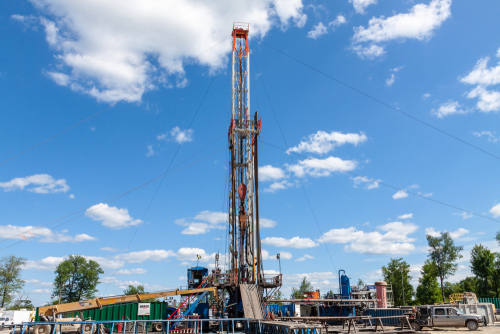
In a letter sent to Gov. Tom Wolf Tuesday, the Associated Petroleum Industries of Pa., Marcellus Shale Coalition, and Pa. Independent Oil & Gas Association presented science-based evidence that the groups said reflect the oil and natural gas industry’s commitment to preserving the environment, public health, and safety of Pennsylvania communities.
“We constantly strive to improve operations, become more efficient, and deploy the latest technology that allows us to continue safely unlocking more of America’s natural gas that is demonstrably improving our environment and the quality of life,” the letter stated. “We have no higher responsibility than the protection and improvement of our environment and the health and safety of all Pennsylvanians.”
The organizations laid out several detailed reports and statistics that represent state and federal findings on the safety of Pennsylvania’s natural gas industry. The groups provided conclusions and findings of independent science, in-depth analysis from career professionals and experts within the Pennsylvania Department of Environmental Protection (DEP) and the Department of Health (DOH).
The letter was sent to the governor following coverage of natural gas development in Pennsylvania by the Pittsburgh Post-Gazette.
The letter highlighted that unconventional operators demonstrated a 98.3 percent regulatory compliance rate last year, following a record 19,617 DEP inspections.
“We have very good oil and gas regulations,” DEP Secretary Patrick McDonnell testified during a Senate hearing last year. Furthermore, when DEP unveiled new regulations on shale drilling in 2016, McDonnell said, the regulations “codify many of the common industry practices to create some of the most protective regulations in the nation and ensure safe development of this important resource.”
Among the research detailed in the letter was the DEP’s long-term ambient air monitoring project of facilities in Washington County. Released in 2018, the research found “few health risks,” and specifically noted that there was “little risk of healthy residents getting sick from breathing air nearby.” Air monitoring results from a 2015 Drexel University came to similar conclusions, according to the letter.
In addition, in June 2019, the DOH, in accordance with the Colorado Department of Public Health and Environment, released a comprehensive systematic review of existing epidemiologic literature. Through their review, the departments found that the majority of studies claiming to link health impacts to oil and gas development were rated “low certainty,” limited in study design, and had either conflicting, insufficient, or a total lack of evidence.
Other findings offered in the letter showed that asthma hospitalization rates in counties with the most shale wells decreased as shale development significantly increased, according to state health data. Further, a report funded by the Heinz Endowments that attempted to link natural gas development to low-infant birth weights yielded evidence that was “not rigorous enough to generate firm, action- guiding scientific conclusions,” according to the Magee Women’s Research Institute.
“Objective, science-based evidence reflects the well-understood fact that natural gas development and strong environmental and public health protection are not mutually exclusive,” the letter stated, acknowledging the possibility for risk within any industry. “Like virtually all industries, we recognize there are risks associated with natural gas development – and continue to work with all stakeholders, including regulators, to ensure these risks are effectively managed.”